South Australian migrant stories of Angelique Boileau, Muhama Yotham and Patricia Kaazan
The topic of migration has been in the crosshairs of late as the country’s migrant intake is cut. But these three South Australians showcase all that is good about it.
SA Weekend
Don't miss out on the headlines from SA Weekend. Followed categories will be added to My News.
Migration is always a hot-button issue, none more so than now as the federal government cuts down its intake in a bid to ease housing shortages and rein in inflation.
The reduction to the intake comes at a time several employers are crying out for skilled migrants in a bid to fill job vacancies.
To mark International Migrants Day on Monday, SA Weekend has spoken to three arrivals who have made their mark on Australia and made it a better place.
How Angelique Boileau got lucky in the lucky country
Angelique Boileau arrived at Adelaide Railway Station as a 14-year-old refugee, having escaped from Soviet-occupied Hungary with her mother and younger sister.
Boileau, now 76, is the chairwoman of Boileau Business Technology, one of South Australia’s major providers of information and communication technology and managed print services for the past 34 years.
When the family arrived here, they had nothing but the rucksack Boileau’s mother was carrying, which held little more than family photographs and documents to identify them.
Despite an escape that involved 48 hours of walking to neighbouring Austria under constant threat of capture, Boileau recalls feeling no fear, which she attributes to her mother who showed unwavering strength, buoyed by her Catholic faith and self-belief.
Her father had come to Adelaide 11 years earlier but the guide he had sent back to collect his family was arrested and Boileau and her family remained behind, living off the parcels that he sent them every month.
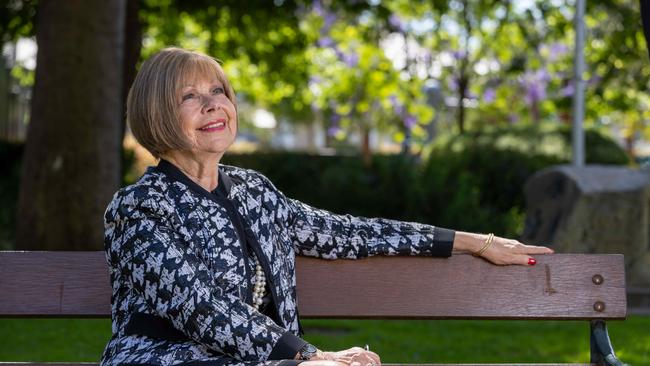
Those parcels included hidden nylon stockings which the seven-year-old Boileau sold door-to-door to fellow villagers.
Those sales kept the family alive and are also likely to have fostered in Boileau an innate drive to sell, laying the foundations for her later business success.
Boileau knew no English when she arrived; she recalls the kindness of a class teacher who took the two young migrant girls under her wing and made it her mission to teach them English.
That teacher would take them home on weekends to spend time with her daughters, immersing the girls in an English-speaking household. Within six months, they were fluent.
“There were no other new Australians, as we were called, but the other children were wonderful. We were like a novelty to them.”
Although no one bullied her and her sister for their differences, Boileau was keenly aware of them.
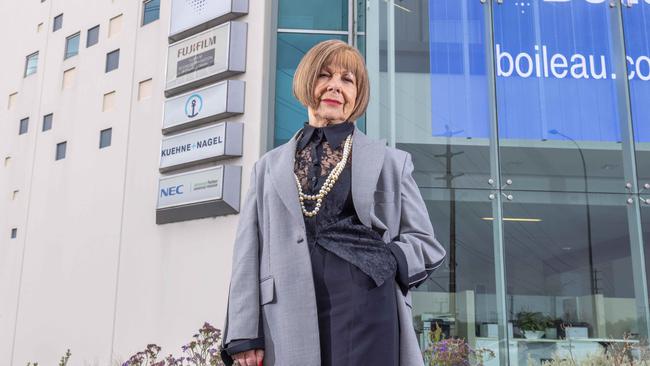
While her friends brought Vegemite sandwiches from home, she and her sister were eating salami ones.
Rather than stand out, Boileau learnt to mix the lard her mother used on their sandwiches with the brown of the gravy from the meat her mother cooked. The result was the perfect Vegemite lookalike.
Boileau’s first memory of arriving in South Australia was its hot north winds.
A harsh lesson for the family about their new environment was learnt when Boileau’s father decided to throw in his job as a factory hand several years later and bought a dairy farm.
Two years of drought followed, forcing the family to buy feed for the cattle. They were soon deep in debt.
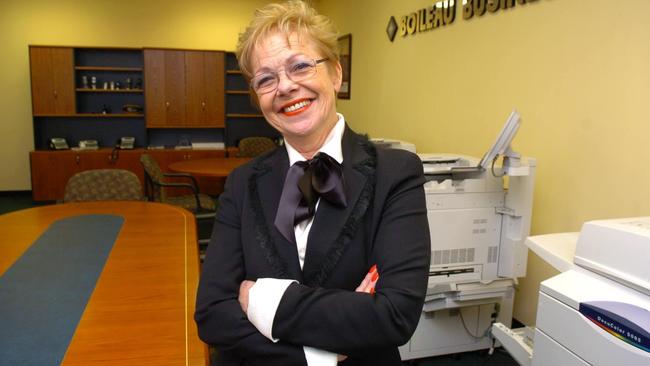
Boileau’s father got another job as a factory hand and Boileau, her mother and sister took on the responsibility of caring for the cattle while the girls also juggled school obligations. Boileau recalls it being the worst two years of her life.
“Every bit of money we got for the milk went on the feed for the cattle. I remember days when my mother did not have a single cent, even for a loaf of bread.”
At 16, Boileau left school so her wages could help keep the family afloat.
She became a legal secretary, then at 18 an air hostess, transferring to Melbourne. At 21, she married a pilot, and they had two daughters together.
When Boileau’s marriage subsequently ended, she went to work for a photocopying company, initially as a secretary but soon making the transition into sales.
After 13 years as their most successful salesperson, she and her second husband, Canadian Michael Boileau, a photocopying engineer with the same company, were offered an opportunity to buy an Adelaide dealership selling the top product in her industry at the time, Xerox machines.
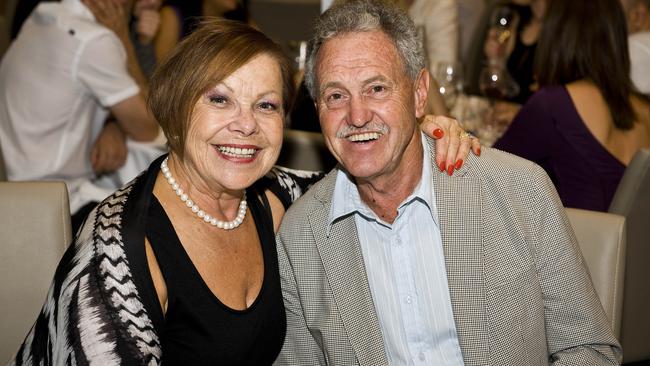
The Boileaus sold up and moved, with teenage children and Boileau’s parents in tow; all of their spare cash going towards the purchase of the dealership.
In 1989, the era of the Keating recession, it was a risky move, but Boileau Business Technology has gone from strength to strength.
Boileau believes the key to its success was to heed the advice of her accountant to never go into debt.
“A house will not earn you an income, the business will. Look after the business and the business will buy back your house.” she recalls. In three years, it did.
The other reason, Boileau believes, is Adelaide’s size.
“I can get into the heart of a small town. In bigger cities it is more difficult to build strong and lasting loyalty with clients. Here in Adelaide, you become part of the community,” Boileau says.
“For Michael and I, both from foreign countries, we wanted to belong here and Adelaide has truly made us feel a part of Australia.”
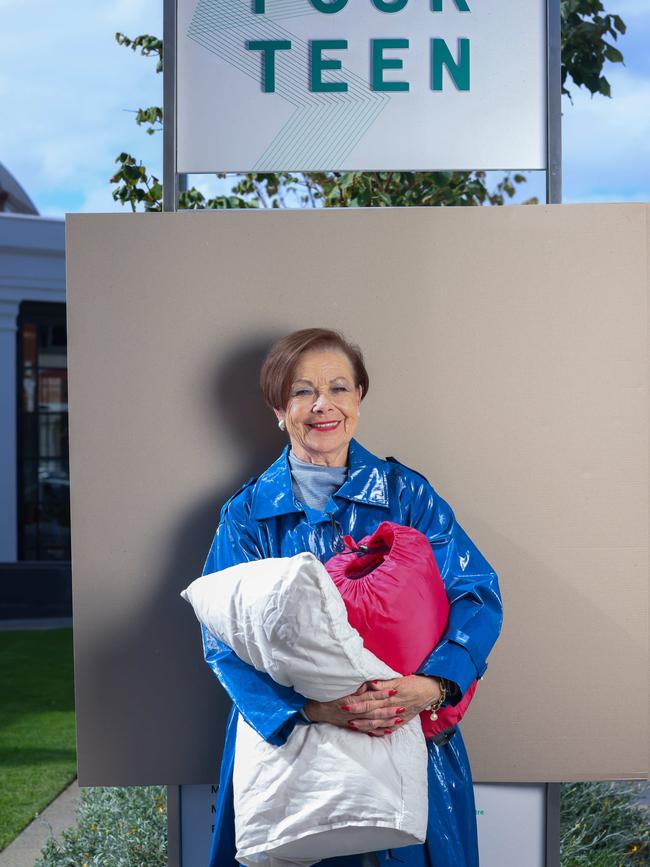
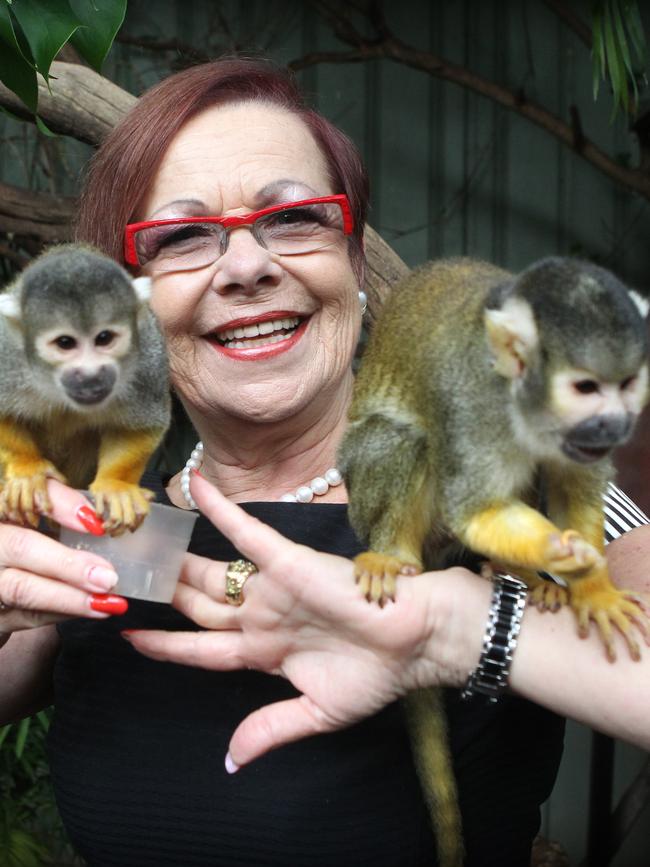
As the business flourished, Boileau ensured it gave back to the community, volunteering her services as well as sponsoring organisations such as St Vincent de Paul, arts organisations, including the Australian Symphony Orchestra, Adelaide Zoo, and the AFL (Crows) among many others.
“I can’t say no, I get great joy out of it. We don’t just give them money, we like to get involved,” she says.
Throughout her life, Boileau has been guided by the words of her mother: “There’s only three different types of people in this world, darling,” Boileau recalls her saying.
“The good Lord provides us all with opportunities every single minute of every day. There are those who will never recognise it, there are those who will recognise it but are not prepared to take the risk. Then there are those that recognise it, grab it and succeed with it and they are the people we call lucky.”
Boileau is one of those lucky ones and that is something she and the town she calls her own can both be grateful for.
Muhama is changing lives for the better
A refugee camp offers refuge but not a lot else. When 18-year-old Muhama Yotham found himself in a Tanzanian refugee camp – having escaped the civil war in his homeland of Burundi in East Africa without his parents – he was safe, but his life in the camp was bleak.
The food was basic, they lived in tents with no electricity, there was limited education and no prospects.
But after nine years, UNHCR, the UN refugee agency, organised for Yotham to resettle in South Australia.
When he arrived in Adelaide in 2005, Yotham was both excited and fearful. How would he survive? He could speak only basic English and didn’t even know how to use a kitchen.
The answer to his fears was to connect with his new community.
The week after his arrival, he volunteered his services to the Migrant Resource Centre that was helping his own resettlement. It was to be the start of a life of service for the new Aussie.
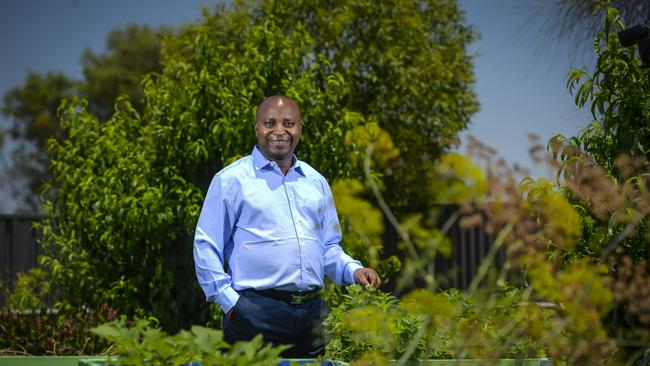
Yotham, of Andrews Farm, is now 46, a father of four and a community leader.
He has juggled many leadership roles since arriving in Adelaide.
In 2009, he was appointed president of the Association of the Burundians Community of South Australia, a role he held for several years.
The association then represented around 200 Burundians, and now around 650.
He has since held several board positions with the South Australian Multicultural and Ethnic Affairs Commission, and the Refugee Council of Australia.
Yotham’s main challenge coming here was the pressing need to learn English, his ticket to employment.
He learnt the language in six months and by 2009, he had a degree in Administrative Management from the University of South Australia, all while he continued volunteering to help others, like himself, to resettle.
Since graduating, Yotham found employment doing similar work, initially with the African Communities Council, then, for several employment organisations and for the past 11 years with Uniting Communities, assisting new and emerging communities.
But none of this was without personal struggle.
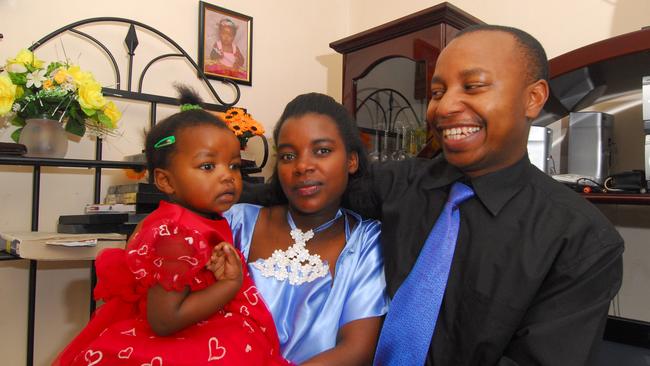
Like many refugees from his country, Yotham was still dealing with the traumas of the civil war he escaped and his experience in the refugee camp.
It has been Yotham’s Christian faith that has sustained him.
“My faith has been how I have been able to forgive those who have done wrong to my parents and my family and for me to be able to believe in the future,” he says.
Recognising the importance of his faith to his survival and how it might help others like him, Yotham studied theology so he could become an ordained minister.
He is a senior pastor of the Amazing Grace Gospel Church in Davoren Park and now works as program manager for the social welfare organisation he founded, Amazing Northern Multicultural Services, which offers programs to help migrants integrate into their community.
Yotham’s simple but life-changing achievement is the establishment of the ANMS community garden.
With community support, the church purchased the land for the garden in 2015. It has been embraced by the community, with a membership now up to 200 people.
Many people who have arrived here from African, Asian and Middle Eastern countries used to work on farms in their homeland.
“I wanted to find something that can help to bring us together doing something we like,” Yotham says.
“Something they would be used to doing back home – growing and harvesting food we are used to eating, where people can feel comfortable and be able to share in that experience with their community.”
There are regular working bees and earlier this month, the garden held its annual end of year celebration, an event where the public is invited to join the members to watch a cultural performance and share a meal made with foods harvested from the garden native to African and Middle Eastern countries.
“I know that some of our people are still struggling with trauma and may not be coping,” Yotham says.
But, once engaged in the community garden, they start to feel better.
“Working together in the garden brings people closer and that’s when they feel like sharing what’s happened in their lives,” he says.
“I feel proud that my children see that I am doing positive things in their community.
“Not everybody gets the opportunity to change people’s lives for the better and I’m proud that I’ve had some part in doing that.”
From war-torn Lebanon to the hospital wards of Adelaide
It was love that brought gastroenterologist Patricia Kaazan to Adelaide from Lebanon in 2012 as a 24-year old.
Now 35, Kaazan and her husband Esber El-Barhoun live in College Park with their two daughters aged eight and one.
Dr Kaazan met her Lebanese-born radiologist husband in Beirut while he was visiting family from his home in Adelaide.
After several years together, he convinced her to come back to Australia with him.
Although love would win out, it was a big decision for Kaazan. She had just completed seven years of university study in medicine and was planning to go on to specialise.
Moving to Australia would require her to undergo further study and a raft of examinations to gain the equivalent accreditation here.
“One of those exams was a clinical exam where I had to see 16 clinical cases and pass at least 12 of those in front of a committee of Australian doctors,” Kaazan says.
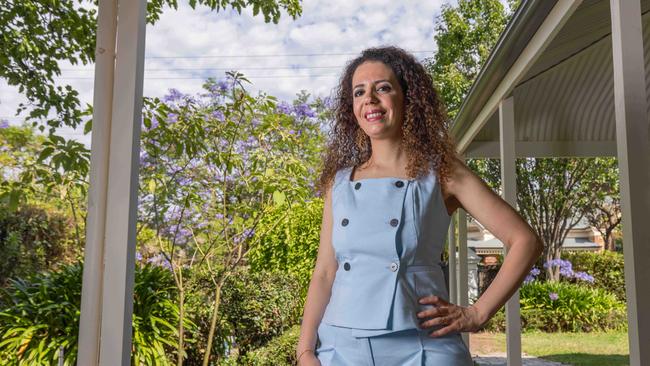
Although she had met the requirements for English literacy, comprehension is not so easy for someone whose first language is Arabic and has been French-educated.
“I was being quizzed and it was a bit scary for me because I was struggling to understand the accent,” she says.
Despite her fears, Kaazan passed her exams but then faced the difficult quest of finding a job as an intern at a time when much of Australia had a limited supply of such jobs.
The prospect of an international medical graduate getting one of them was low, but with Kaazan’s excellent references and exam results, she started her first job at the Queen Elizabeth Hospital.
Without family to help, the juggle of combining children with two busy medical careers has been difficult, but Kaazan and her husband manage by organising care when necessary, combined with offers of assistance from their friendly neighbours.
Kaazan’s desire to study medicine took root very early, growing up in her family’s small Beirut apartment, while war raged around them.
“I have memories of running to shelters as a small child as the sirens were going. I could hear the screaming of neighbours and other kids crying,” Kaazan says. “I remember the fear. It was terrible.”
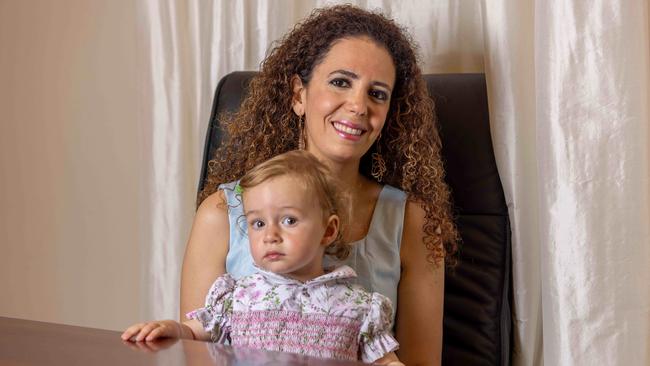
After the end of the civil war, Beirut continued to suffer terrorist attacks and Kaazan, at 17, recalls seeing the shocking consequences of one such attack. What she saw fuelled her determination to pursue a career in medicine.
“I was visiting the nearby hospital and saw people coming to emergency suffering third degree burns and some were dying. I saw horrible, horrible things,” she says.
“Medicine was always a mission for me. It is a vocation to provide equal health care for everyone. To try to be as human as possible even in inhuman times.”
Kaazan’s specialisation in gastroenterology was driven by a desire to have ongoing relationships with patients suffering from chronic disease, as well as wanting to deal with acute life-threatening conditions.
She says it’s unlikely she would have been a gastroenterologist in Lebanon, as other non-interventionist specialisations were considered culturally more appropriate for women.
Kaazan feels fortunate to have had one of Adelaide’s first female gastroenterologists encouraging her, a crucial factor in her chosen career direction.
As well as her clinical practice, Kaazan is also studying for her PHD, focusing on the impact of obesity on gut inflammation. In the face of growing obesity in the community, such research will be welcomed.
Although Kaazan never expected to live her life in Adelaide, she is certain it will be home for the rest of her life.
“It’s such a lovely town to raise a family. It’s quiet and safe. I love that we live by the river and we can cycle there with the kids,” she says.
And what hopes does she have for her daughters?
“I just want to keep them in this beautiful, safe family environment and empower them to become successful, confident young women.”




